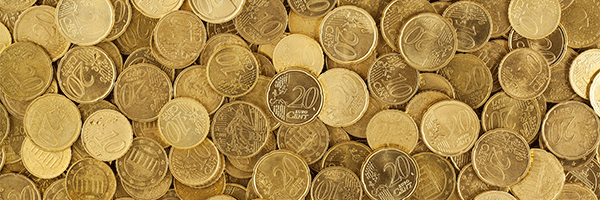Volatility

June 22, 2023 | Daily JAM, GNRC, Short Term, Volatility |
I’ve got major questions about Generac’s (GNRC) long-term growth. The company, the dominant player in the market for residential backup electric generators (with about 4 times the market share–or about 75% of the market–of its nearest competitor) faces big questions, in my opinion, about its long-term strategy and its ability to grab significant revenue in the clean energy market where it faces competition from larger companies, more established in the market, such as SolarEdge (SEDG) and Enphase (ENPH). But in the short run? Say, the next two or maybe three (at the outside) months, I say this is a stock that will ride summer storms and heat waves to gains. Especially, if as I project, the company delivers lackluster quarterly earnings when it reports on August 2, but gives very positive guidance for the next quarter or two

June 1, 2023 | AMAT, AMD, CVS, Daily JAM, Dividend Income, EMR, GOOG, ILMN, Jubak Picks, Long Term, MSFT, NVDA, Top 50 Stocks, TSM, Volatility |
Artificial intelligence really is a paradigm-breaking, transformative technology. Right now, investors are so enthusiastic about the sector, especially the obvious leader Nvidia (NVDA), that we’re looking at a potential bubble that will collapse with much gnashing of teeth and I-told-you-so “wisdom” casting doubt on the reality of the entire endeavor. I think a bubble is indeed possible. Nvidia did trade at a trailing twelve-month price-to-earnings ratio of 196 on May 31, after all. But I think you do want to own the sector now–because the breaking of the bubble, if it does break is, in my opinion, two quarters or more away. And you want to own the sector for the long run–say, 10 years or more–because it is such a game changer for so much of the economy. But what to own? I’ve put together a list of the 10 stocks that I think are the best way to participate in the AI gold rush.

May 30, 2023 | Daily JAM, Perfect Five-ETFs, Videos, Volatility |
Today’s Quick Pick is Short iShares China Large-Cap ETF (FXI) COVID is back in China with a new peak of an estimated 65 million cases a week. It’s not as bad as the last peak which saw 35 million cases a day, but it’s enough that the economy will take a hit. And China’s reopening recovery was already looking a bit shaky. During the last wave of COVID, the iShares China Large-Cap ETF (FXI) fell to $20.95. The ETF rose steadily from that low on optimism over China opening back up. The economy didn’t bounce back as quickly as expected and FXI has stayed in the $27-$28 range recently. My suggestion is to buy an August Put Option. That will leave enough time for the COVID wave to play out. The August 18 Put with a strike price of 27, trades at just $1.00 or $100 for a contract of 100 shares of the ETF. That price makes this an affordable volatility play on a macroeconomic trend, and I’ll be adding this to my Volatility Portfolio portfolio on my paid site, JubakAM.com, and selling this ETF out of my Perfect 5 ETF Portfolio.

May 24, 2023 | Daily JAM, NVDA, Top 50 Stocks, Volatility |
Nvidia (NVDA) shares were up 19.68% at 4:45 p.m. New York time today, May 24, after the company reported beating analyst estimates on earnings and revenue. The company also told analysts to expect second-quarter revenue way, way above pre-announcement projections. For the three-month period ending April 30, Nvidia earned $1.09 per share, excluding one-time items, as revenue came in at $7.19 billion. Analysts were looking for the company to report earnings of 92 cents a share and $6.28 billion in revenue.

May 17, 2023 | Daily JAM, Special Reports, Volatility |
Investors and the market indexes remain convinced that the economy will dodge a recession, even if only narrowly. Retail companies, however, aren’t nearly so sure. In the last two days, both Home Depot (HD) and Target (TGT) have cut guidance for the quarter(s) ahead. Consumers, they say, are hesitant to take a trip down the aisle devoted t discretionary goods such as furniture and apparel. With the New York Federal Reserve reporting that consumers look increasingly stretched on their credit card balances, I don’t see that reluctance ending soon. So even if the economy as a whole dodges a recession, I think the shares of companies in the consumer discretionary sector are likely to report their own sector-specific recession or the next quarter or two.

May 2, 2023 | Daily JAM, SCHW, Short Term, Volatility |
I’m closing this position on Schwab (SCHW) in my Volatility Portion at a slight loss–I bought these Put Options on March 28 at $3.70 and they traded at $3.50 today May 2–that’s a 5.4% loss. But with the expiration date on these options approaching, I am concerned that the price of the option will fall with time decay.

May 2, 2023 | Daily JAM, KRE, Morning Briefing, Short Term, Volatility |
Yes, it’s a volatile market. Yesterday, May 1, the take from the Wall Street talking heads and JPMorgan Chase CEO Jamie Dimon was that the banking crisis (or at least this stage of it, to be fair to Dimon) was over. Today, May 2, the fear is that the crisis isn’t over. Regional bank stocks have plunged again with Western Alliance Bancorporation (WAL), for example, down 17.12% for the day as of 3 p.m. New York time. The regional bank ETF, the SPDR S&P Regional Banking ETF (KRE) is down 6.61%. That all means that the August 18 Put Options with a strike price of $41 that I bought yesterday at $2.55 are selling at 3 p.m. today at $4.72. Counting a slight gain from yesterday’s action after the buy, these Puts are up 85% in a day. I’m taking that gain today and selling this position out of my Volatility Portfolio

May 1, 2023 | Daily JAM, KRE, Special Reports, Volatility |
JPMorgan Chase’s (JPM) deal today, Monday, May 1, to acquire First Republic Bank (FRC) after the Federal Deposit Insurance Corporation (FDIC) regulators seized the bank certainly puts an end to the First Republic chapter of the banking crisis. But there are lots of chapters to go in this banking crisis. So my second short for this market is to buy Put Options on the SPDR S&P Regional Banking ETF (KRE).

April 26, 2023 | Daily JAM, Jubak Picks, Morning Briefing, MSFT, Top 50 Stocks, Volatility |
To subscribe to JAM you need to fill in some details below including, ahem, some info on how you'll pay us. A subscription is $199 (although if you're subscribing with one of our special offers it will be lower) for a year for ongoing and continuing access to the...

April 14, 2023 | Daily JAM, Short Term, Volatility |
The VIX “fear index,” known more formally as the CBOE S&P 500 Volatility Index (VIX), dropped again today with a retreat of 3.60% taking the index down to a close of 17.16. The VIX, which measures the price that investors and traders are willing to pay in the options market to hedge risk on the Standard & Poor’s 500 in the next month or so, hasn’t been this low in 2022. The prior low for the VIX this year was 17.87 on February 2. You have to go back to December 27, 2021, when the index stood at 17.22 to find a roughly comparable level. With all that lurking out there in the financial world, I find the VIX at 17.16 too good to pass up.

April 5, 2023 | Daily JAM, Dividend Income, DVN, Jubak Picks, Volatility |
Just in case there are readers who don’t watch my videos, but do follow my picks. Today, April 5, I added Devon Energy (DVN) to my Jubak Picks, Dividend, and Volatility Portfolios.

April 5, 2023 | Daily JAM, Dividend Income, Jubak Picks, Volatility |
Today’s Quick Pick is Devon Energy (NYSE: DVN). On Sunday, OPEC+ said it’s going to cut oil production by about 1 million barrels a day. The following Monday saw a surge in oil prices. My take on this? If you’re going to bet on oil, do it now, before the question of whether or not we’ll have a recession starts to hang over the sector. Devon Energy has a similar playbook to Pioneer Resources, a stock I already own. Devon has introduced a variable dividend (50% of post-dividend cash flow) alongside their set dividend payout. About 70% of Devon’s resources are in the Permian Basin, the lowest-cost oil resource in the U.S. oil shale sector. At the moment, the forward yield is about 9.4%, but it is variable and could go up and down. If oil prices continue to go up and Devon decides to produce more oil, cash flow will go up with it. I’ll be adding this to three of my portfolios–Jubak Picks, Dividend, and Volatility to get one more bump in this commodity before we start to worry about an upcoming recession.













